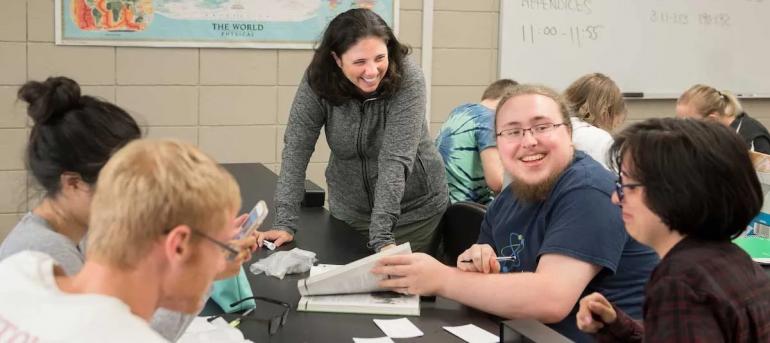First Year Advising

A blueprint for the process, goals, and outcomes for advising each year.
First Year Advising
Your first year is a critical point in your academic career.
As such, UTC aims to provide you with the best academic support possible, starting with direct academic advising.
Your assigned advisor is determined by your preferred academic major program. Most first-year students are advised by professional advisors in the Center for Academic Support and Advisement.
Exceptions to this general rule are:
If you are one of these majors, you will be advised in the academic department by your assigned faculty or professional advisor.
Student Learning Outcomes
By the end of the first year, a student should be able to:
- Recognize and identify available majors in the area of interest, understand major and appropriate General Education requirements and said majors' pre-requisites and co-requisites.
- Locate their academic advisor's contact information and effectively and professionally communicate with them.
- Identify the importance of managing their time effectively and keeping commitments, including scheduled appointments with their academic advisor.
- Recognize the contractual obligations of the academic calendar and catalog including, but not limited to: critical deadlines; FERPA; course repeat policy; and transfer credit processing.
- Become familiar with the resources available on the UTC website and the essential functions of MyMocsNet. Available web resources include, but are not limited to: the course catalog and schedule, ClearPath Showcases, departmental webpages and various student support services. MyMocsNet’s essential functions include, but are not limited to: MyMocsDegree, course schedule and registration information, grades and other student records, financial resources and UTC MocsMail.
Second Year Advising
Student Learning Outcomes
By the end of the second year, a student should be able to:
- Understand the importance of General Education and how these requirements relate to their selected major.
- Declare a major and/or minor and understand the expectations of said major/minor, including translation of the pre- and co-requisites and the process of course sequencing.
- Demonstrate professionalism by using effective written and oral communication when addressing their academic advisor and other university personnel, show academic initiative and keep commitments and appointments.
- Familiarize themselves with the university petitions processes.
- Understand the various functions of MyMocsDegree and be able to independently use them in academic planning.
- Begin to explore potential career possibilities within their chosen major field.
- Identify co-op, internships and/or study abroad opportunities.
Third Year Advising
Student Learning Outcomes
By the end of the third year, a student should be able to:
- Apply problem-solving methods and exercise judgment for course sequencing to successfully meet degree requirements.
- Take responsibility for their academic and collegiate planning.
- Understand the potential consequences of academic changes on graduation.
- Link appropriate courses with career path.
- Identify, evaluate and plan potential career or graduate school opportunities.
- Navigate the graduation application process.
Senior Year Advising
Student Learning Outcomes
By the end of the senior year, a student should be able to:
- Complete the graduation application process.
- Successfully complete all degree requirements or compose alternative options.
- Complete remaining graduation requirements as applicable. These may include, but are not limited to: specific major requirements, senior exit exam, financial aid Loan Exit Counseling and Commencement activities.
- Finalize post-graduate opportunities.
- Maintain a professional relationship with their academic advisor.
- Transfer the professional communication methods learned to their post-graduate relationships.